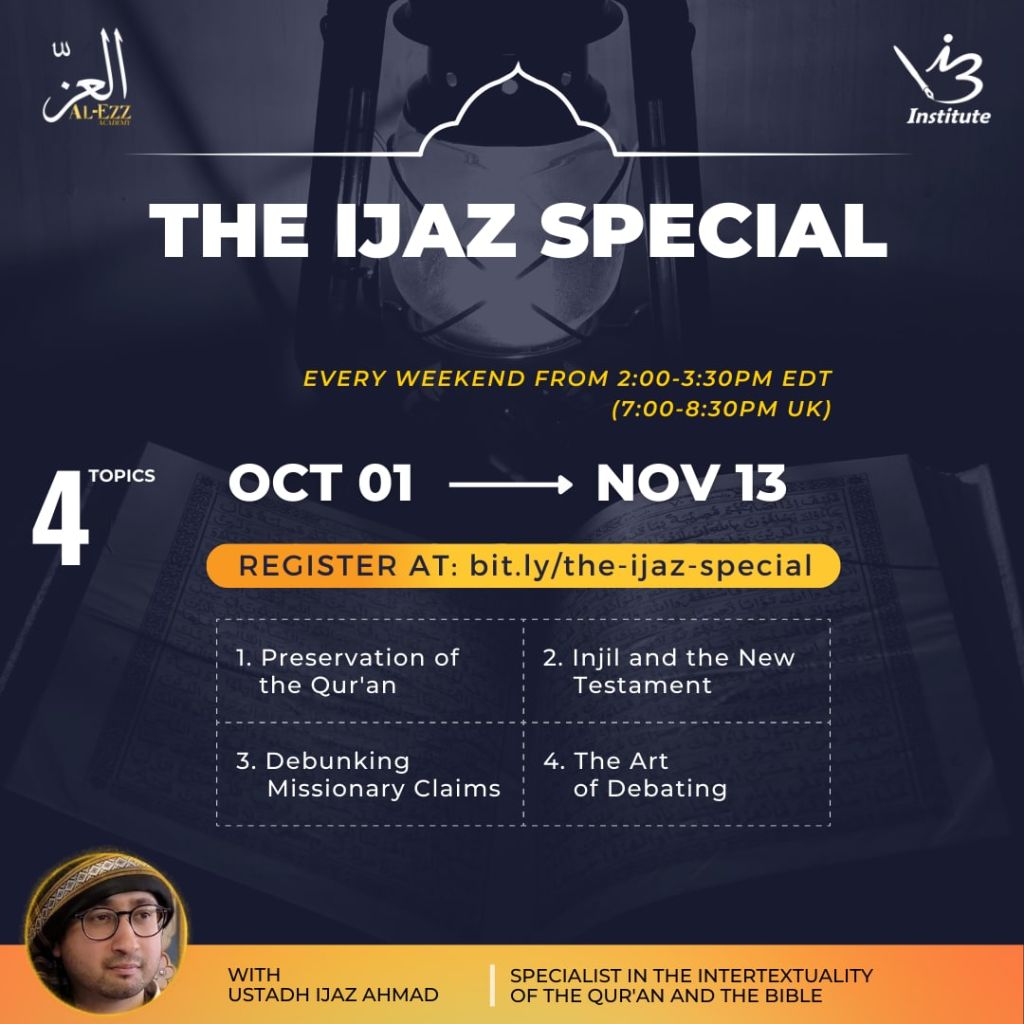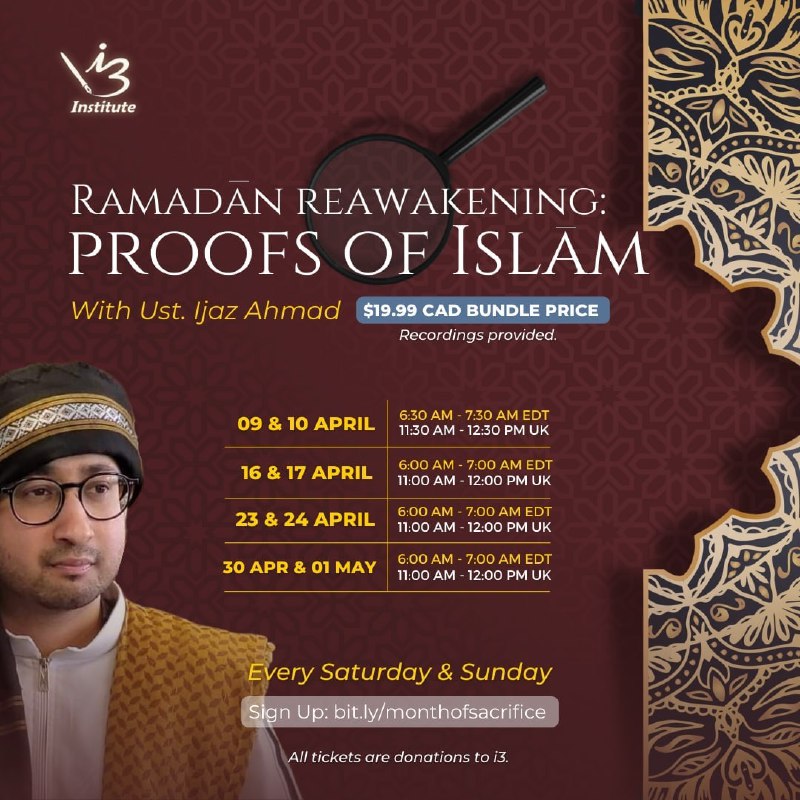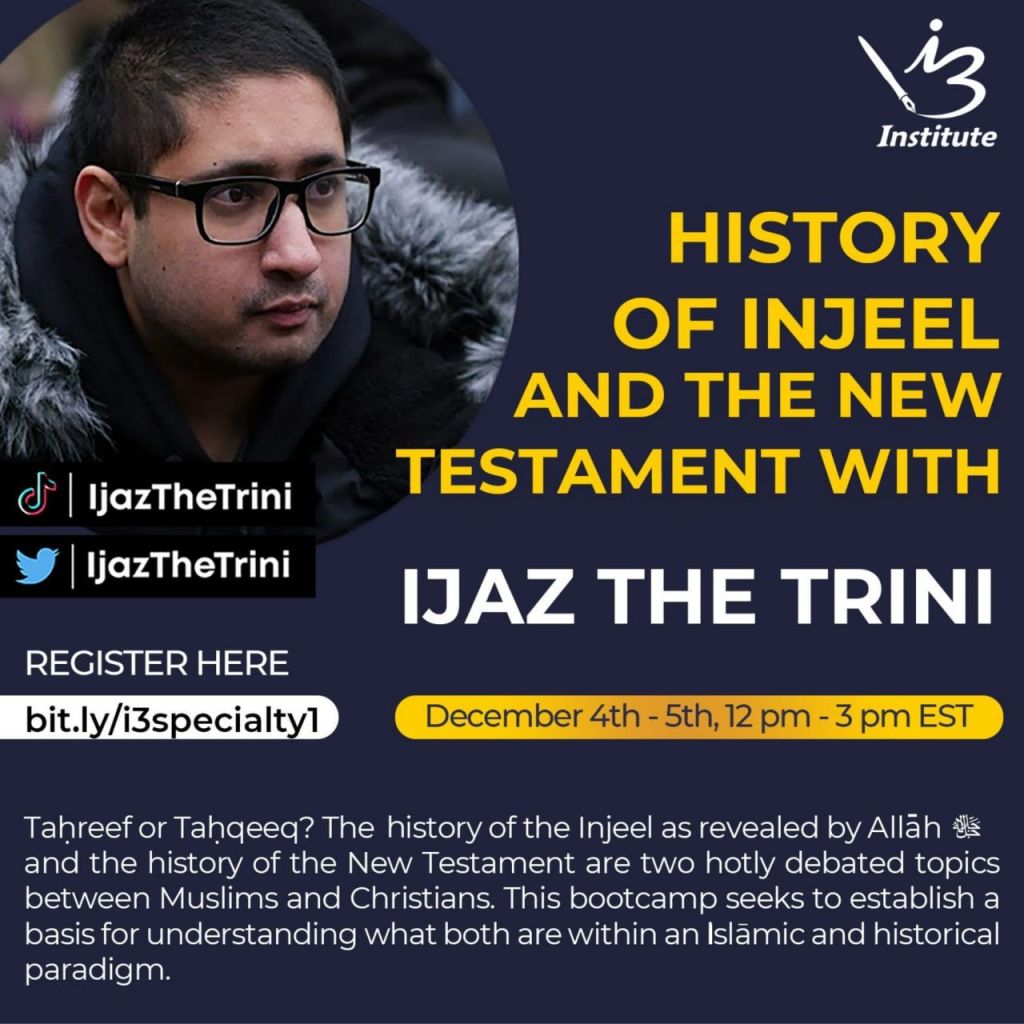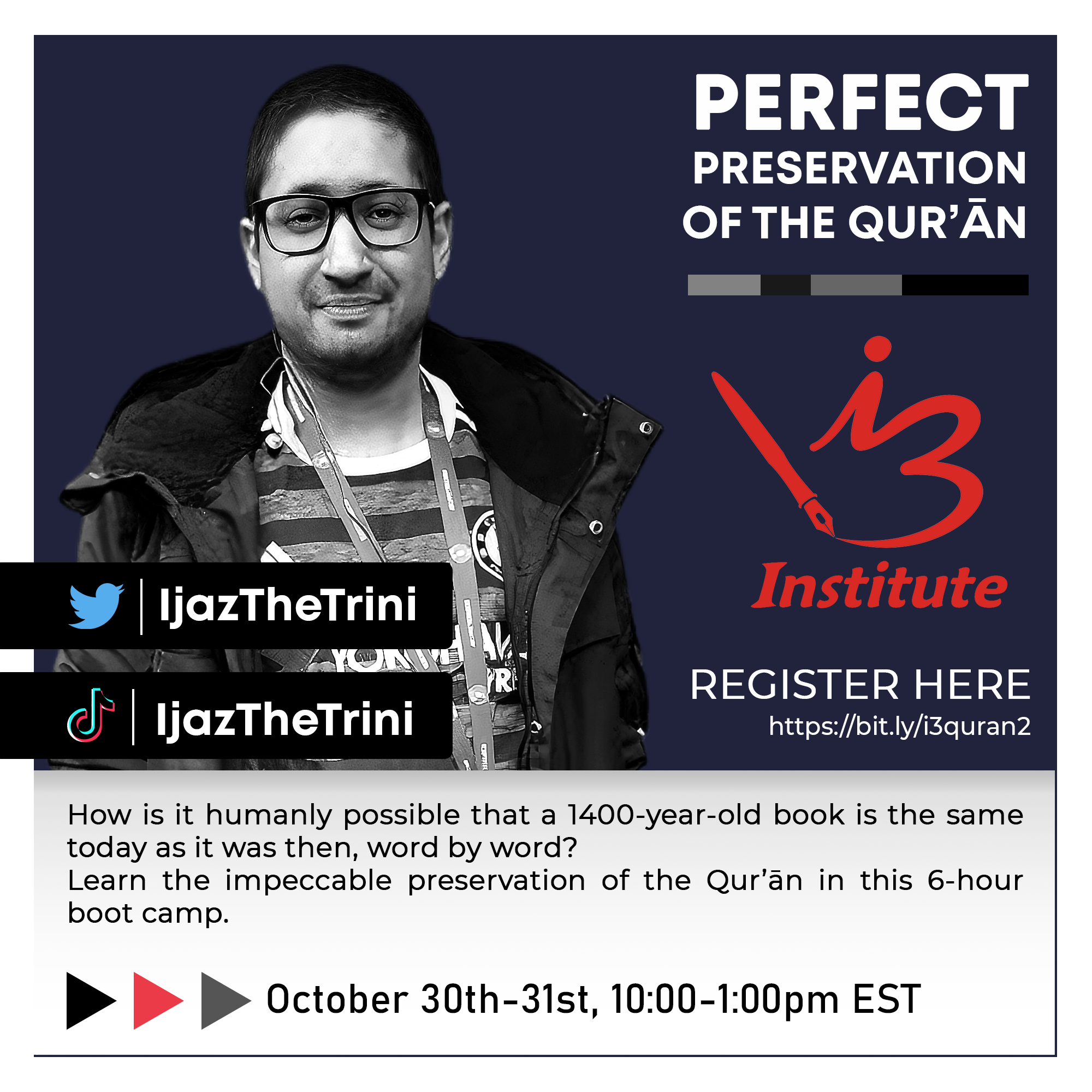One of the greatest fears of a parent is the tragedy of a child forsaking their dīn (religion) and thereby becoming an apostate. In the noble Qurʾān we find the narrative of the wise man Luqmān عليه السلام and his advice to his son:
“O my dear son! Establish prayer, encourage what is good and forbid what is evil, and endure patiently whatever befalls you. Surely this is a resolve to aspire to. And do not turn your nose up to people, nor walk pridefully upon the earth. Surely Allah does not like whoever is arrogant, boastful. Be moderate in your pace. And lower your voice, for the ugliest of all voices is certainly the braying of donkeys.”
Qurʾān 31:17-19, The Clear Qurʾān by Dr. Mustafa Khattab
Increases in the acceptance of cultural ideals which do not cohere with the ethics of Islām are quickly becoming flashpoints of conflict in the home. Mitigation strategies need to be employed by parents and these strategies need to be taught across the board to the point it becomes commonplace within the Ummah. Unless we as an Ummah acknowledge and identify that there are issues when it comes to tarbiyah (the way in which we raise our children), then we are effectively ignoring a growing problem. There are two factors we will consider today, the first is one of the predictors of apostasy:
People who grew up in a home with relatively little credible displays of faith are more likely to be atheists, according to new research published in Social Psychological and Personality Science. The study indicates that cultural transmission — or the lack thereof — is a stronger predictor of religious disbelief than other factors, such as heightened analytic thinking.
New psychology research identifies a robust predictor of atheism in adulthood – PsyPost
Here we see the advice of Luqmān عليه السلام in the noble Qurʾān clearly being demonstrated in the aforementioned study:
The researchers found evidence that a lack of exposure to credibility-enhancing displays of religious faith was a key predictor of atheism. In other words, those with caregivers who faithfully modeled their religious beliefs, such as going to religious services or acting fairly to others because their religion taught them so, were less likely to be atheists.
Ibid
In other words, if we teach our children that Islām is true because it is good and beneficial, but in the home we don’t practise Islām (the daily prayers, fasting, giving charity) but rather find constant conflict (quarrels, hypocrisy, dishonesty, lying) then the child genuinely has no reason to think Islām is benefitting his family. It’s at that point Islām becomes an impediment to what is good and this beautiful dīn becomes associated with the negative attributes of their family. It makes sense as to why a child would want to create that disassociation from Islām, to create a disassociation from chaos, stress, and toxicity.
Imagine a scenario where we teach our children that Islām teaches us to have good etiquette towards those we disagree with, but then they see their father and mother constantly quarrelling, and using insults towards each other. Imagine a scenario where we take them to the masjid for the Friday prayer but we fail to pray any other prayer. The example we set literally has a moral effect on our children, they observe and remember everything, consciously or otherwise. The Qurʾān effectively teaches us this in a very poignant way:
“As for those who believe and whose descendants follow them in faith, We will elevate their descendants to their rank, never discounting anything ˹of the reward˺ of their deeds. Every person will reap only what they sowed.”
Qurʾān 52:21, The Clear Qurʾān by Dr. Mustafa Khattab
The consequence of being a hypocrite therefore has an everlasting effect in this life and in the next:
“Allah has promised the hypocrites, both men and women, and the disbelievers an everlasting stay in the Fire of Hell—it is sufficient for them. Allah has condemned them, and they will suffer a never-ending punishment.”
Qurʾān 9:68, The Clear Qurʾān by Dr. Mustafa Khattab
The second factor that we must look at is known as maternal education (as it relates to mental and spiritual resilience). It is a duty in Islam that our Muslim sisters are indeed given the time and consideration of becoming educated. The Messenger of Allāh صلى الله عليه وسلم said:
طَلَبُ الْعِلْمِ فَرِيضَةٌ عَلَى كُلِّ مُسْلِمٍ
Seeking knowledge is an obligation upon every Muslim.
Sunan Ibn Majah 224, Grade: Hasan
Education is for all Muslims, not only for men. Maternal education refers to the level of education which a mother has and its long term effects on a child’s intellectual development. Low maternal education is recognized as a marker of low resilience (the ability to adapt to difficult or trying circumstances), as well as a marker of lesser educational success. In the peer-reviewed journal, Merrill-Palmer Quarterly, Vol. 55, No. 3, we learn quite a few important details from the article, “Increases in Maternal Education and Young Children’s Language Skills.” The article states on page 319 that:
“Children of more highly educated parents enter school with higher levels of academic skills and continue to perform better than other children (Entwisle & Alexander, 1993; Lee & Burkham, 2002).”
Increases in Maternal Education and Young Children’s Language Skills, Merrill-Palmer Quarterly, Vol. 55, No. 3
Furthermore on page 343 it states:
“Improvements in mothers’ education are associated with concurrent improvements in young children’s language development and the quality of children’s home environments, particularly the provision of learning materials and mothers’ responsiveness.”
Ibid
In a traditional Islāmic household the primary caregiver of a child tends to be the mother, the research therefore elicits the fact that the primary caregiver’s level of education and intelligence has a direct developmental effect on a child’s ability to learn. If the mothers of our children aren’t educated then we are effectively limiting the intellectual development of our children. This can and does directly affect their (our children’s) ability to reasonably think through trying circumstances (emotional regulation during distress). In the book The Resilience Factor: 7 Keys to Finding Your Inner Strength and Overcoming Life’s Hurdles by two PhD psychologist scholars, Karen Reivich and Andrew Shatté, they state that:
“Resilience is of vital importance when making quick and tough decisions in moments of chaos. What’s more, it grants you the ability to do so with grace, humor, and optimism. Resilience transforms. It transforms hardship into challenge, failure into success, helplessness into power. Resilience turns victims into survivors and allows survivors to thrive. Resilient people are loath to allow even major setbacks to push them from their life course.”
The Resilience Factor: 7 Keys to Finding Your Inner Strength and Overcoming Life’s Hurdles, p 11.
From this, we know then that a higher level of education for the mother of a child, directly impacts their resilience, and as children grow they need a robust thinking style to navigate challenges, intellectually and spiritually. The book qualifies this point by explaining the impact and efficacy of a robust thinking style:
“Their work indicates that the process that determines our resilience as adults is a dynamic one—a complex interaction between elements of a child’s external and internal worlds. Many of the early external pressures on resilience—low birthweight due to poor maternal nutrition, childhood poverty, divorce, or physical abuse —can themselves never be reversed. They are in the past. But some of the internal causes of low resilience, such as thinking styles, can be modified, even counteracted. And, more important, once your thinking style has changed, you can use it to undo the ongoing negative consequences that stemmed from events in your childhood that were outside your control.”
The Resilience Factor: 7 Keys to Finding Your Inner Strength and Overcoming Life’s Hurdles, p 24.
The link between resilience (mental, emotional, and spiritual), maternal education and an unstable family structure is established (emphasis mine own):
“When we hear such stories of deprivation in the early years, we know intuitively that these children are disadvantaged—they are at high risk of failing to achieve later in life. Research has isolated many of the childhood circumstances that present the greatest threat to resilience: Low birthweight, low socioeconomic status, low maternal education, unstable family structure, and maltreatment put any child at risk for underachievement. But how is it that these characteristics of the world outside the child come to exert their influence on the internal life of the child, on her motivation, achievement, and on her resilience?”
The Resilience Factor: 7 Keys to Finding Your Inner Strength and Overcoming Life’s Hurdles, p 26.
In conclusion, as Muslims we need to practise our faith consistently, as well as educate both parents, and in focusing on these two areas, the likelihood of our children remaining Muslims while being successful in navigating life (especially spiritual challenges) seems to be fairly attainable.
There are many classes that Muslims can attend for free, I recommend the i3 Institute as one of them.
and Allāh knows best.






You must be logged in to post a comment.